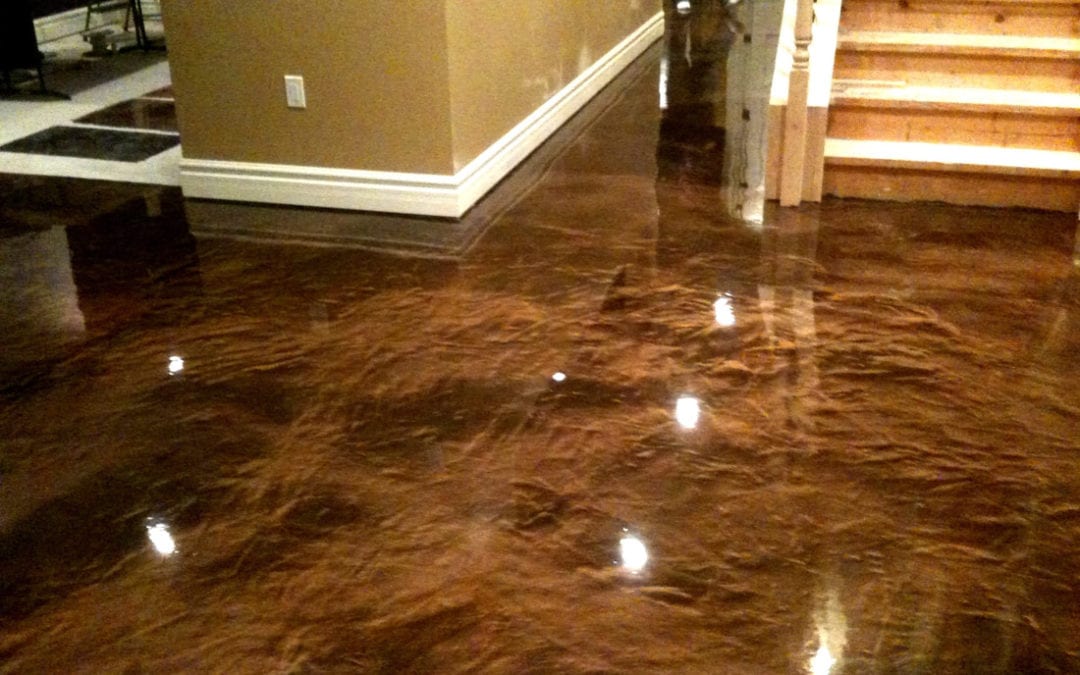Floors might look tough and extremely resilient at first sight, but, they can lose stability and durability much faster than you think. Be it due to improper care or prolonged exposure to wear and tear, floors can crack or chip towards the edges. This is why it’s extremely important to coat the floor surface with something more durable and less corrosive.
Amongst several floor coatings, it is the epoxy floor coating that has become the most popular. Even though the use of epoxy coating is common and can be seen in several places, not many are aware of this new technology.
To help you understand, we have decided to discuss the basics of epoxy material, the benefits of coating, and other related facts.
What is epoxy coating and how it is applied?
Epoxy is made from two products:
- Resins are polymers either obtained from plants or manufactured synthetically. They have hard plastic properties and are the main component of epoxy.
- Polymer hardeners react with the resin molecules and form cross-linked polymer molecules. This process is known as curing.
Before the coat is applied, the floor surface is rubbed with sanders to make it rough. Also, if there are cracks, they are sealed first. After the floor preparatory works are done, epoxy floor coating is applied. Long wiping brushes are used to get even thickness throughout.
What type of resins are used for epoxy coats?
Three different types of resins are used for epoxy floor coating. Below we have described the three resin types that can be used for epoxies.
- Bisphenol resins are lightweight and manufactured by combining bisphenol-A and epichlorohydrin.
- Alphatic resins are formed in two ways- by reacting with epichlorohydrin or mixing the components with vegetable oils via epoxidation.
- Glycidylamine resins are formed by a reaction between epichlorohydrin and aromatic amines. These are the hardest epoxy resins and have more durability than others.
How epoxy floor coats are beneficial?
There are various reasons why the epoxy floor coatingis preferred over others. Since many of you would be hearing about epoxy coatings for the first time, we have listed the major advantages of it.
Highly durable and corrosion resistant
One of the major benefits of epoxy coatings is their high durability. They can handle heavy traffic and constant movements of machinery, tolerating heavy footsteps, and others. This is why the coats are durable and long-lasting.
Increases the floor’s longevity
Uncoated floor surfaces are exposed to constant wear and tear factors. This leads to cracks on the surface, thus affecting both the visual appeal and longevity. However, with the help of epoxy floor coating, you will be able to enhance the floor’s life. This is why in commercial areas, epoxy coatings are mandatory.
Adds lustre to the floor surface
Another major benefit of coating the floor surfaces with epoxy resins is the improved aesthetics. The resins glisten under light and will add shine to the floor. In addition, different colored resins can be mixed together to get an abstract look. Also, with the various customizations available, you are sure to get one of your preference.
Do epoxy coats have any disadvantages?
- Epoxies emit ammonia vapors during installation which is highly harmful when inhaled.
- Hardening of the epoxy coats takes a long time.
- Floors must be prepared at the beginning, like sealing of cracks and removing the chip, which could be a costly affair.
- Mixing different resins is a difficult task.
- The floor surfaces become very slippery if they are wet and covered with water.
Conclusion
In the above sections, we have explained the basics of epoxy floor coating and the types that are usually used for epoxy coats. Also, we have discussed both the advantages and disadvantages of epoxy coatings which will help you to decide whether your property needs the epoxy coating.

